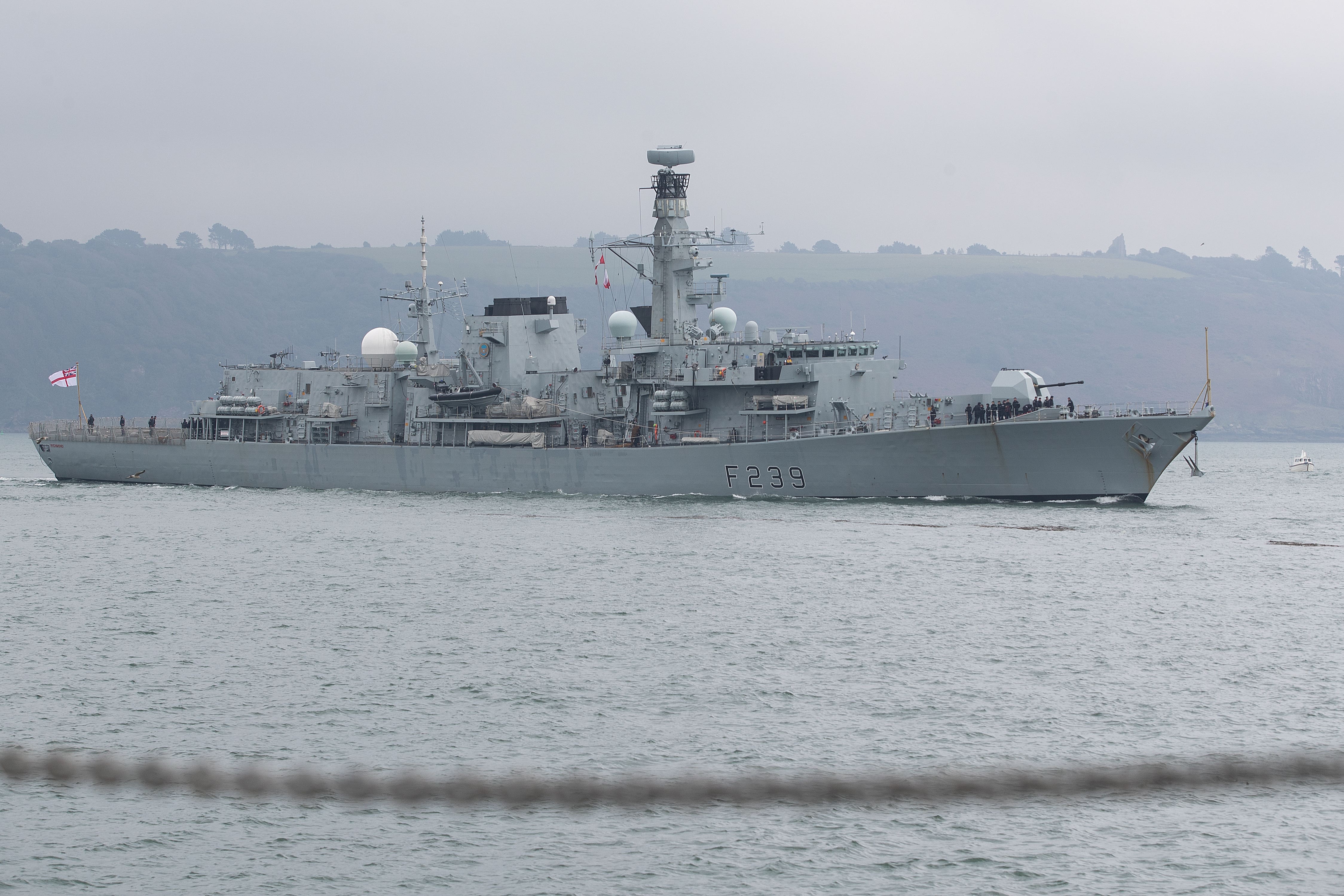Royal Navy ships join allied effort to protect undersea pipelines
Leaders from around Europe agreed to an unprecedented deployment starting in December.

A Royal Navy taskforce of seven ships will patrol the seas around northern Europe as part of an allied effort to protect undersea infrastructure.
From December, warships and military aircraft will undertake surveillance operations and act as a deterrent against interference, following an unprecedented agreement by the 10 Joint Expeditionary Force (JEF) nations.
Earlier this year, the European security alliance agreed to step up efforts to protect undersea cables and pipelines from potential Russian threats.
Since the destruction of the NordStream pipeline in September 2022, there has been increasing concern around the safety of critical underwater infrastructure.
The deployment in December marks the first time a “JEF Response Option” has been activated and is intended to demonstrate how the alliance would respond to an emergency.
The UK contribution to the deployment will include two Royal Navy frigates, two offshore patrol vessels and mine countermeasures vessels, as well as a Royal Fleet Auxiliary landing ship.
They will be supported by a Royal Air Force P-8 Poseidon maritime patrol aircraft based at RAF Lossiemouth.
The warships will be spaced out to cover a large area of the sea, with patrols understood to be taking place in the North Atlantic and North Sea.
Defence Secretary Grant Shapps said: “This historic and unprecedented agreement will see a Royal Navy task force of seven ships, supported by the RAF, join allies from across northern Europe as part of a joint operation to defend our shared critical infrastructure against potential threats.
“The UK and our JEF partners will do whatever it takes to defend our mutual areas of interest, and today’s display of unshakeable unity sends a powerful message of deterrence that we stand ready to meet any potential threat with force.
“Together, we stand firmly in support of peace, security, and a steadfast resolve to uphold the rules-based international order.”
Ministers from the 10 JEF nations agreed the deployment at a virtual meeting on Tuesday.
The UK’s contribution to the deployment includes frigates HMS Richmond and HMS Somerset, patrol vessels HMS Severn and HMS Tyne, as well as minehunters HMS Cattistock and HMS Penzance and the landing ship RFA Mounts Bay.
Bookmark popover
Removed from bookmarks